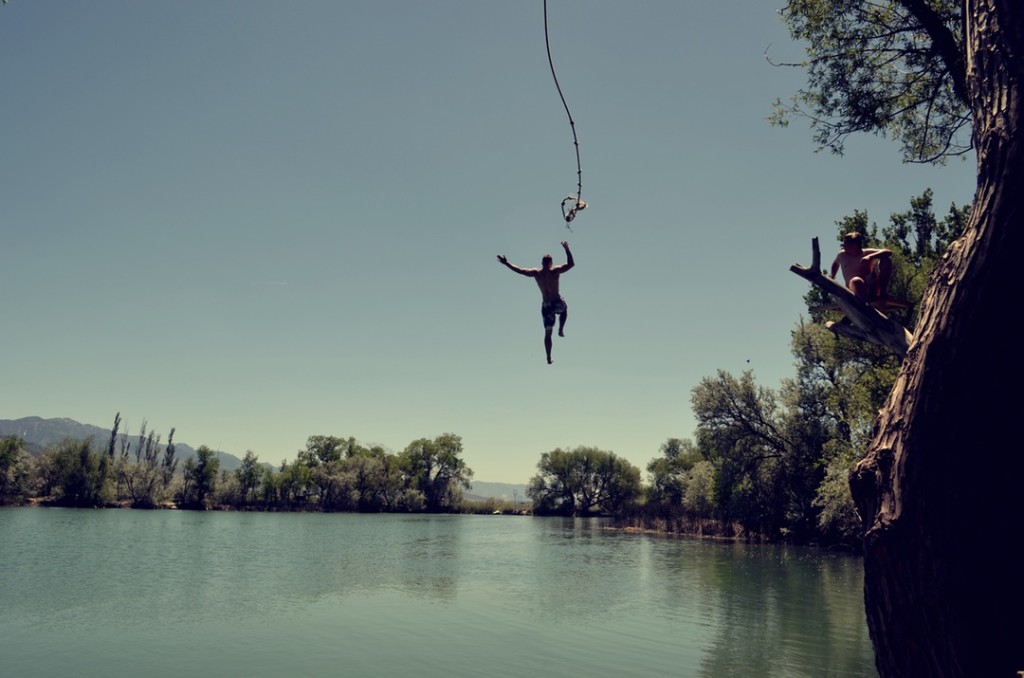No parent likes to see her kid fail.
I consider myself a calculated risk taker. And yet, when I became a mom, the worrier blossomed in me. When my son was born, I felt like my heart sprouted two legs and started walking (or rather, crawling) around outside of my body. There he was, living in the outside world, and I could not protect him from it. Instantly, I childproofed my home and began worrying about him being too hot or too cold, getting enough to eat, falling off the monkey bars, washing his hands, getting too close to the stairs.
My worrying wasn’t restricted to just his physical wellbeing, either. I worried about his embarrassment, frustration, and anger, too. I wanted to protect him from pain of every kind. Growing up means we have to learn the rules and boundaries necessary for independence. And because learning is trial and error (and error and error and error), it involves a lot of failure, and a lot of pain. It hurts us to see our kids fail because we know how much it sucks to fail.
So, while I knew he had to learn to do things for himself — even if the learning process was painful — in the short term I let myself shelter him, thinking, “You’ll miss the day he doesn’t need you so much.” Change is hard, especially when the status quo comes with hugs and “I love you, mommy”s.
But preventing failure prevents growth.
As he got older, I noticed the ill effects of my protectiveness. He was a physically advanced kid — big, strong, and coordinated — but he was cautious on the playground. He wanted to be carried up and down stairs. He got frustrated easily when he tried new things and didn’t succeed immediately. My fretting was holding him back. In my attempt to protect him, I was instilling in him a fragility and a fear of failure. Eventually, I saw that doing what feels good as a parent would breed narcissism, self-indulgence, and unwillingness to take risks or cope with consequences.
Depriving him of failure would ultimately prevent him from the possibility of real success. So I set out to teach him how to fail.
Failure is a skill.
Arthur Ashe said, “You’ve got to get to the stage in life where going for it is more important than winning or losing.” I live by that, and it has afforded me some of the most rewarding experiences of my life — moving overseas, performing in front of crowds of thousands, starting a business. I wasn’t born with a “go for it” attitude. I had to learn it. My parents and coaches and educators had to teach me. It’s like skateboarding or cycling or dancing or skiing or just about any other sport — you’re going to fall. It’s about learning how to fall without getting badly hurt, and knowing how to get up.
It’s critical to learn to fail early. Failing gets harder as we get older. We fail in bigger, more spectacular ways. We overdraw accounts. We get fired. We crash our cars and lose our purses. The dark truth is that adulthood is like one big marathon of failure, with all the Best Things Ever mixed in along the way to keep you going.
But how do you teach failure?
There are three pillars of the “failure training program”:
-
Letting go
This is the hardest step. It means insisting that he tie his own shoes and cut his own meat. Letting him play on the big kid playground. Building in consequences for leaving toys out. It means trusting and expecting him to do developmentally appropriate tasks.
-
Rewarding effort
Rewarding her for taking risks on ideas and trying new things is critical to fostering her self-esteem and confidence. It’s not just, “Great job cleaning up your toys by yourself,” it’s, “I saw you trying to get a snack by yourself — that’s really great!” (Even if she can’t reach it, drops the cereal on the floor, or chooses something less than ideal.)
-
Making it safe
Making it safe is two-pronged. First, he has to feel safe to fail with you. He has to trust that if he tries to pour his own milk and spills some, he won’t get yelled at. Then, he has to feel safe to fail without you. He has to know you’ll be there for him to come home and lament his failure, and you’ll love him anyway. And if he ever really has a problem, you’ll help him through it.
It’s still a struggle for me to bury my instinct to protect my son from failing, but every time I’m faced with a moment of fear on his behalf, I tell myself that he will never learn to take leaps of faith if I keep him away from the edges.

















